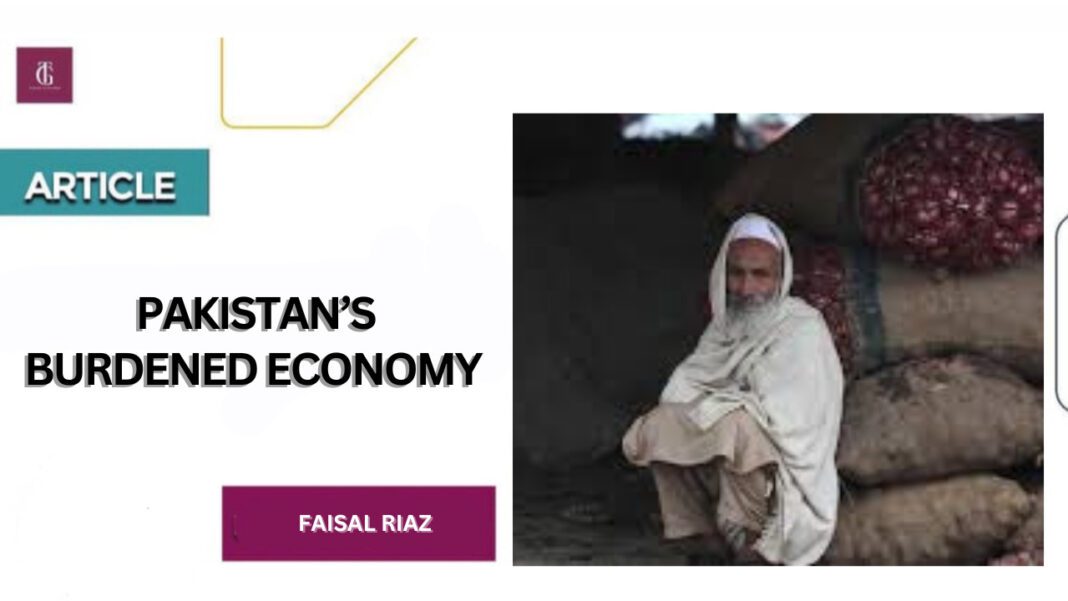Pakistan’s economy has long been burdened by heavy debts and reliance on international financial institutions such as the International Monetary Fund (IMF). With 22 loan programs from the IMF alone, Pakistan has become one of the largest recipients of IMF loans. This article explores the reasons behind Pakistan’s economic vulnerability and the factors that have contributed to its debt burden.
One of the key reasons for Pakistan’s economic challenges can be traced back to its military budget, which it inherited from its inception as a new country. From the very beginning, Pakistan faced the burden of maintaining a large military due to regional security concerns. As a result, the country had to seek external aid, including loans from the United States, China, Arab countries, Japan, and notably, the IMF.
Moreover, Pakistan faced a disadvantageous position in terms of its industrial structure. Unlike India, Pakistan did not inherit any major industrial cities from British India. Cities like Calcutta, Bombay, and Madras (Chennai) went to India, leaving Pakistan to build its industrial base from scratch. This lack of infrastructure further strained Pakistan’s economy, requiring substantial investments and efforts to develop its own industries.
Another significant event that impacted Pakistan’s economic situation was the 1971 separation of East Pakistan, which resulted in the creation of Bangladesh. Despite the significant reduction in both population and geographical area, Pakistan’s military budget remained high, becoming an even greater economic burden.
Additionally, Pakistan made a crucial mistake by linking its border disputes with neighboring countries, particularly India, to trade. This approach proved detrimental to economic cooperation and hindered potential growth. In contrast, other countries with territorial disputes have managed to separate their trade relations from such conflicts. For example, China and Taiwan, despite their ongoing political tensions, maintain substantial trade and economic cooperation. Similarly, countries like the United States, Russia, England, France, and Germany have managed to engage in trade despite historical conflicts and rivalries.
Pakistan and India, on the other hand, have been more sensitive about their territorial disputes, resulting in a cessation of social, economic, and diplomatic cooperation. Various attempts to improve Indo-Pak relations have faltered due to mutual distrust and geopolitical tensions. The absence of progress in India under Prime Minister Narendra Modi further exacerbates the challenges of establishing productive bilateral relations
It is essential for Pakistan to learn from the mistakes of the past and adopt a different approach to its foreign policy and trade relations. Rather than allowing emotions and territorial disputes to impede progress, the country should prioritize economic cooperation and conflict resolution separately, as observed in more developed nations. Transparent decision-making processes, such as open debates in parliament, should be embraced, with the primary objective of promoting the welfare of the people. Policies must be grounded in economic and peaceful considerations rather than promoting outdated theories or fostering old rivalries.
Furthermore, Pakistan should shift away from the notion of relying on a single “savior” political leader to solve all problems. Recognizing that no individual can address all challenges alone, emphasis should be placed on establishing transparent systems, including fair elections, an impartial judiciary, and a transparent budgeting process. Transparency is crucial to ensuring accountability and preventing any hidden agendas or deceitful practices that harm the interests of the people.
In conclusion, Pakistan’s economic vulnerability and heavy debt burden have been influenced by various factors, including its military budget, the absence of inherited industrial infrastructure, and the linkage of border disputes with trade. To overcome these challenges, Pakistan needs to focus on separating economic cooperation from territorial conflicts, adopting transparent decision-making processes, and moving away from the notion of a single savior leader. By prioritizing economic and peaceful considerations, Pakistan can pave the way for a more stable and prosperous future.






